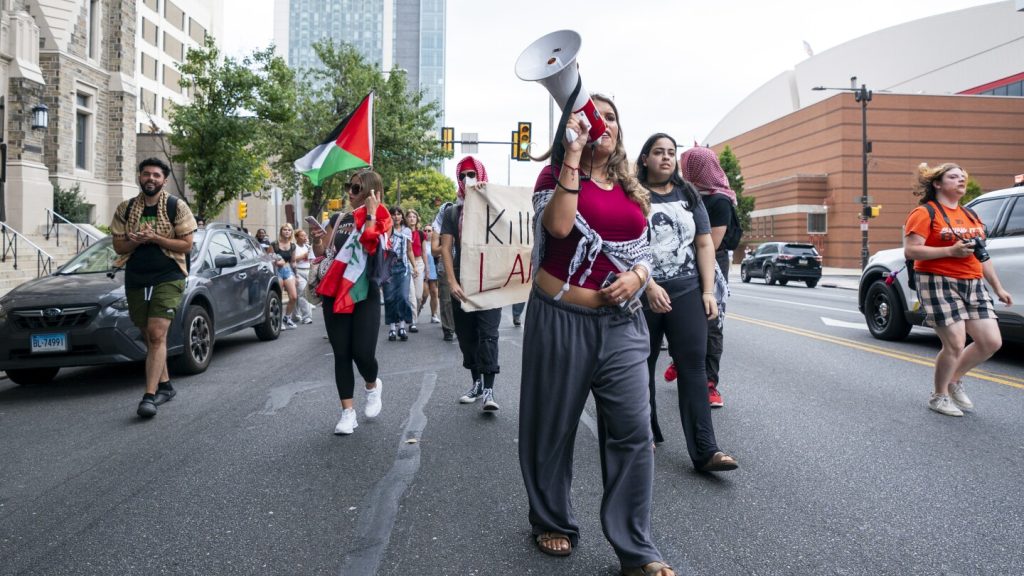Elizabeth Howell-Egan, a law student at the University of Southern California (USC), is unable to be on campus due to her involvement in anti-war protests in the spring. Despite this, she is continuing her activism by holding online sessions on the Israel-Hamas war and distributing flyers outside the campus, now heavily guarded with security checkpoints. Howell-Egan, a member of the Students for Justice in Palestine chapter, is advocating for USC to divest from companies profiting off the war, showcasing the risks students are taking to create change.
This fall, students protesting the war in Gaza are facing increased security measures and guidelines on U.S. college campuses to prevent disruptions and protect students from hate speech. While activism has put their academic progress, career prospects, and tuition payments at risk, many feel a moral obligation to speak out. Tent encampments, once common during protests, have been banned on many campuses, and some students involved in previous demonstrations have either graduated or are facing disciplinary action. Despite this, activists are finding new ways to protest, inspired by the ongoing conflict in Gaza.
The tension surrounding the Israel-Hamas conflict has spilled over onto American campuses since the war commenced on October 7, resulting in over 40,000 deaths in Gaza. Additionally, Jewish students have faced hostility, including antisemitic language and signs, prompting U.S. civil rights investigations at some colleges. The rise in demonstrations both in support of Palestinians and Jewish students has highlighted the need for better dialogue and understanding on campuses.
Students like Alia Amanpour Trapp at Temple University are facing the consequences of their activism, including arrests and disciplinary measures. Trapp, motivated by her family history of political activism, remains committed to the Students for Justice in Palestine group and their protests against Hillel for its alleged support of Zionism. While her actions have led to backlash, Trapp believes in the importance of standing up for what she believes in, even in the face of adversity and criticism.
At Brown University, students are pushing for divestment from companies with ties to Israel, leading to a potential vote by the governing board this October. Advocates for divestment face opposition, with some viewing their actions as antisemitic, despite their commitment to promoting justice and peace. The push for divestment has ignited debate on campus and drawn attention from outside parties, including state attorneys general, adding to the overall tensions surrounding the conflict.
Despite being barred from campus, Elizabeth Howell-Egan remains resolute in her activism, seeing it as a vital form of free speech. USC’s crackdown and disciplinary measures have not deterred her, as she believes in the importance of standing up for what is right. The USC Divest Coalition, composed of various student organizations, has shifted its focus off-campus to engage with the broader community and navigate the university’s new regulations. Through community outreach and teach-ins, students are continuing their fight for justice and change, despite the challenges they face.


